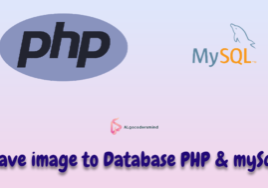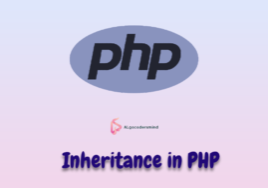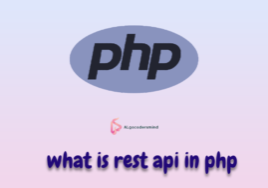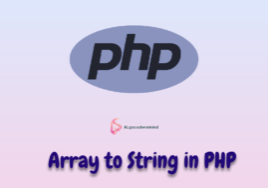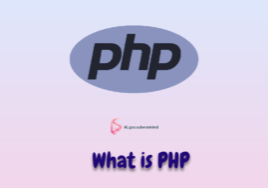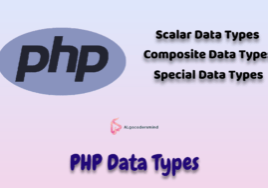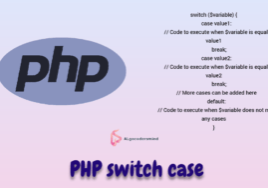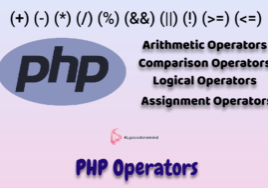PHP Variable Scope: Mastering the Fundamentals for Efficient Code
As a PHP developer, understanding variable scope is crucial for writing efficient and error-free code. Variables in PHP have different scopes, which determine their accessibility and lifespan within a program. In this article, we will explore the concept of variable scope in PHP and provide code examples to illustrate its usage.
Table of Contents
Introduction to PHP Variable Scope
Variable scope refers to the part of a program where a variable is visible and can be accessed. In PHP, there are several types of variable scopes, including global scope, local scope, and function parameters. Understanding how these scopes work is essential for writing clean and maintainable code.
Global Scope
Variables that are defined outside of any function or class possess a global scope. They can be accessed from anywhere in the PHP script, including inside functions and classes. However, it is generally recommended to minimize the use of global variables as they can make code harder to understand and maintain.
$globalVariable = 42;
function exampleFunction() {
global $globalVariable;
echo $globalVariable;
}
exampleFunction(); // Output: 42Local Scope
Variables defined within a function have a local scope, meaning they are accessible only within that specific function. Local variables are created when the function is called and destroyed when the function completes its execution. Attempting to access a local variable outside of its scope will lead to an error.
function exampleFunction() {
$localVariable = "Hello, World!";
echo $localVariable;
}
exampleFunction(); // Output: Hello, World!
echo $localVariable; // Error: Undefined variableStatic Variables
Static variables are a special type of local variable that retain their value between function calls. Unlike regular local variables, static variables are not destroyed when a function completes its execution. They preserve their value, allowing you to maintain state across multiple function calls.
function increment() {
static $counter = 0;
$counter++;
echo $counter;
}
increment(); // Output: 1
increment(); // Output: 2
increment(); // Output: 3Superglobals
Superglobals are predefined variables in PHP that are always accessible from any scope within a script. They are built-in variables provided by the PHP language and contain useful information, such as form input, server details, and session data. Some commonly used superglobals include $_GET, $_POST, $_SESSION, and $_SERVER.
echo $_GET['name']; // Output: John Doe
echo $_POST['email']; // Output: john@example.comFunction Parameters
Function parameters allow you to pass values into a function. They have a local scope within the function and can be used like any other local variable. By passing arguments to a function, you can manipulate and work with different values without affecting global variables.
function greet($name) {
echo "Hello, $name!";
}
greet("Alice"); // Output: Hello, Alice!
greet("Bob
"); // Output: Hello, Bob!Variable Shadowing
Variable shadowing happens when a variable in a nested scope shares the same name as a variable in an outer scope. In such cases, the inner variable takes precedence, “shadowing” the outer variable. It is important to be mindful of variable shadowing to avoid unexpected behavior and bugs in your code.
$variable = "Global";
function exampleFunction() {
$variable = "Local";
echo $variable;
}
exampleFunction(); // Output: Local
echo $variable; // Output: GlobalUsing Variable Scope Effectively
Understanding PHP variable scope allows you to write more modular and maintainable code. By limiting the scope of variables, you can reduce the risk of naming conflicts and unintended side effects. It is good practice to declare variables in the smallest scope possible to improve code readability and minimize bugs.
Best Practices for PHP Variable Scope
- Always declare variables explicitly before using them to avoid implicit global variables.
- Minimize the use of global variables and favor local variables whenever possible.
- Use descriptive variable names to enhance code readability and maintainability.
- Avoid variable shadowing to prevent confusion and potential bugs.
- Initialize variables with appropriate default values to avoid undefined variable errors.
Conclusion
In conclusion, understanding PHP variable scope is essential for writing efficient and organized code. By defining variables within the appropriate scope, you can improve code readability, reduce bugs, and enhance code maintainability. Remember to follow best practices and utilize the different variable scopes to their fullest potential.
FAQs
Q1: Can I access a global variable inside a function without using the “global” keyword?
Yes, you can access global variables inside a function without using the “global” keyword. However, using the “global” keyword makes it explicit and improves code clarity, especially when dealing with larger codebases.
Q2: Are static variables limited to a single function?
No, static variables are limited to their enclosing scope, which can be a function, method, or class. They are not limited to a single function and can be used across multiple function calls.
Q3: How can I make a variable accessible across multiple files?
To make a variable accessible across multiple files, you can use sessions, cookies, or PHP’s include or require statements to import variables from one file to another.
Q4: What are some common use cases for superglobals?
Superglobals are commonly used for accessing form input, handling user sessions, retrieving server information, and managing cookies. They provide a convenient way to access and manipulate data across different scopes within a PHP script.
Q5: Can I change the value of a function parameter?
Yes, you can change the value of a function parameter within the function. However, modifying the parameter will not affect the value of the argument passed to the function.
Our Recommendation
- Session and Cookies in PHP: A comprehensive guide
- PHP Data Types – A Comprehensive Guide with Code Examples
- PHP Switch Case: Structure for Efficient Code Execution
- PHP Operators with Code Example: A Comprehensive Guide
- PHP Variable Scope: Mastering the Fundamentals for Efficient Code
- Implode and Explode in PHP tutorial
- PHP String Functions: Enhancing String Manipulation tutorial
- Exploring Array in PHP: A Comprehensive Guide
- Oops Concepts in PHP: A Guide with Code Examples
- Ternary Operator in PHP: Examples and Best Practices
- Pagination in PHP and MySql: Simplify Your Data Display and Navigation
- Secure and Simple: Forgot Password in PHP
- Login in PHP Secure & Reliable
- CRUD Operation in PHP: A comprehensive guide
- Inheritance in PHP: A comprehensive guide
Akhand Pratap Singh
Related Post
Newsletter
Recent Posts
- How to Upload Image into Database Using PHP
- Inheritance in PHP: A comprehensive guide
- Image Resize in Laravel 10 : A comprehensive Guide
- Laravel Passport: A comprehensive guide in Laravel 10
- Laravel JWT Tutorial: A comprehensive guide
- Import and Export Excel in Laravel: A Step-by-Step Guide
- Rest API in PHP: Building Powerful and Scalable Web Services
- Array to String in PHP – A Comprehensive Guide
- Event Loop in JavaScript: A comprehensive guide
- Ternary Operator in JavaScript: A Comprehensive Guide

